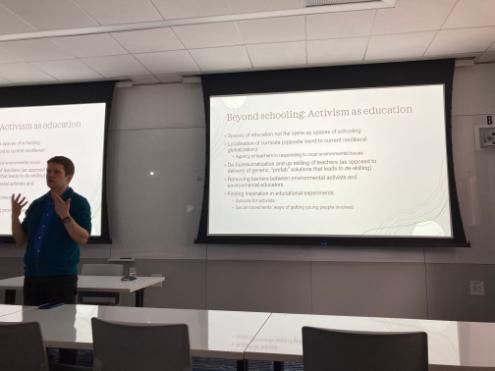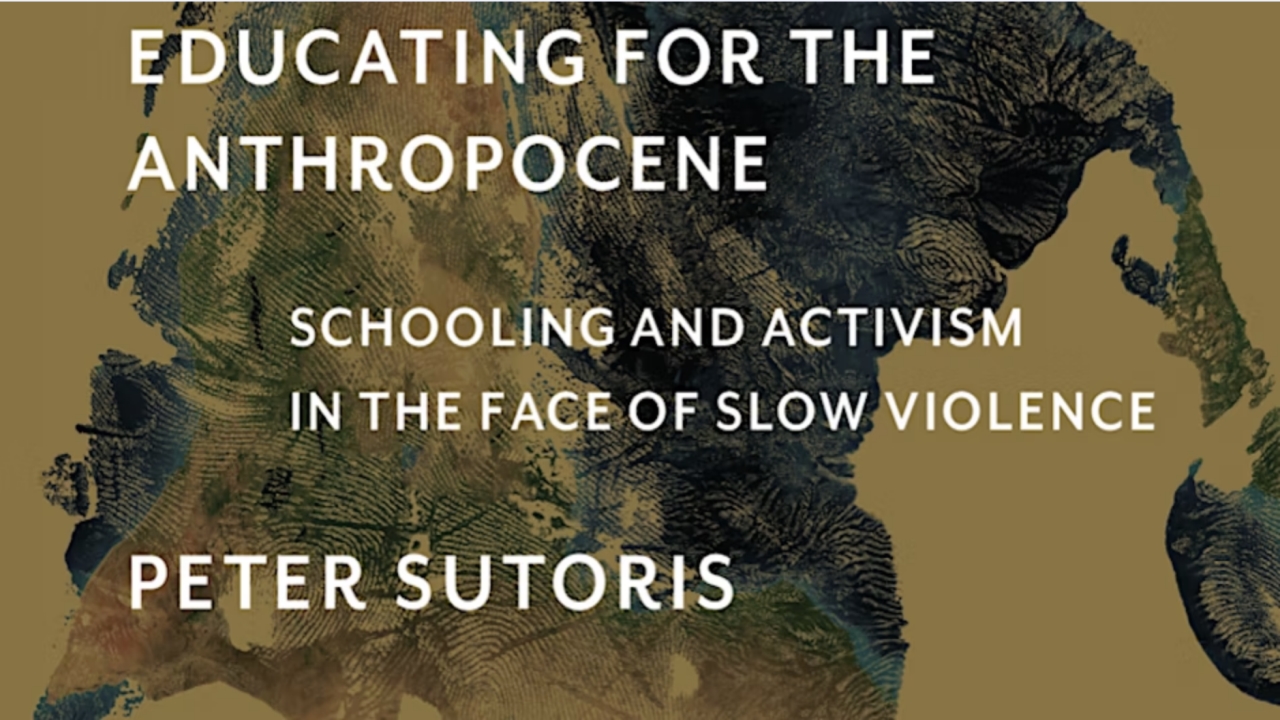Peter Sutoris, assistant professor in education at the University of York, presented research from his new book Educating for the Anthropocene: Schooling and Activism in the Face of Slow Violence as part of the International and Transcultural Studies Workshop. Sutoris took those in attendance on a deep dive into the lives of youth who face the realities of the climate crisis on a daily basis. Drawing from case studies in India and South Africa, in what he calls areas of ‘high Anthropocene’, he uses multisited ethnographic projects to uncover through student-made films how youth make sense of the future of the Anthropocene.

Of particular interest is Sutoris’s engagement with international education as an environmental anthropologist. His book calls for a bridging of schooling and environmental activism, to find answers to the global environmental crisis. He espouses a model of learning which constructs a circular process for students to challenge infinite growth and development models in efforts to return to a more radical definition of sustainability. The model includes four key components: imagination, communication, grasp, and care which ultimately lend themselves to action. It is within this process that Sutoris urges researchers to look outside conventional models and practices of education to reveal how cross-generational knowledge transfers are happening in youth activist spaces. Further, he asks in what ways, if at all, is education shifting to consider the global environmental crisis, specifically in the context of marginalized communities where the climate crisis intersects with colonial and racist histories of unsustainable practices?
Click here for more about Educating for the Anthropocene
